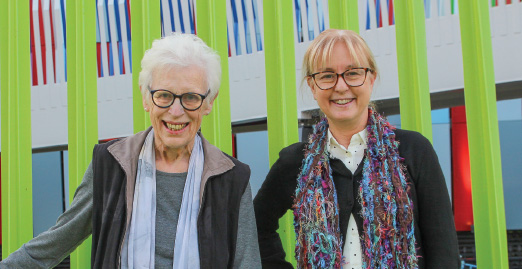Search
Showing results for "clinical trials"
Research
Echinocandins in Pediatric Invasive Candidiasis and the Challenges of Antifungal Use in ChildrenIn pediatric invasive candidiasis (IC), epidemiology and risk factors differ compared to adults. Furthermore, the use of antifungals in children is challenging and requires consideration of availability and tolerability of formulations, pharmacokinetic and pharmacodynamic variations, and safety in different age groups.
Research
Fine-grained Fidgety Movement Classification using Active LearningTypically developing infants, between the corrected age of 9-20 weeks, produce fidgety movements. These movements can be identified with the General Movement Assessment, but their identification requires trained professionals to conduct the assessment from video recordings.
Research
Macrolides in children with community-acquired pneumonia: Panacea or placebo?Pneumonia, most often caused by a respiratory virus, is common in childhood.
Research
RD-RAP: Beyond rare disease patient registries, devising a comprehensive data and analytic frameworkWe introduce and describe the concept of a Rare Disease Registry and Analytics Platform
Read about Professor Tim Jones and Associate Professor Liz Davis, co-directors of the Children's Diabetes Centre.
Research
Assessing the Use and Acceptability of Virtual Reality to Assist Coping in Children Undergoing Clinical ProceduresVirtual reality is used as a distraction tool during medical procedures that can cause anxiety and pain. We assessed the usefulness, engagement, value and feasibility of virtual reality to help children cope with routine clinical procedures.
Research
Acute Lymphoblastic Leukemia in Infants: A Distinctive, High-Risk Subtype of Childhood Acute Lymphoblastic LeukemiaAcute lymphoblastic leukemia (ALL) in infants younger than 1 year of age is an aggressive, high-risk subtype of childhood ALL. Infant ALL with KMT2A-r is characteristically poorly responsive to chemotherapy and hematopoietic stem cell transplantation. New strategies, such as molecularly targeted therapies and immunotherapies, are in development and show promise in preclinical models and early phase studies.
Research
Developing and characterising juvenile models of aggressive paediatric brain cancers for the evaluation of novel immunotherapiesNick Raelene Terrance Gottardo Endersby Johns MBChB FRACP PhD BSc (Hons) PhD Head of Paediatric and Adolescent Oncology and Haematology, Perth

The Kids Research Institute Australia is helping scientists across the globe inch their way towards clinical trials which could, at last, provide relief for children and families dealing with CDKL5.
Research
Pharmacogenomics in pediatric oncology: Australian adolescent or young adult and caregiver perspectivesPreemptive pharmacogenomic (PGx) testing in pediatric oncology patients could reduce toxicity and improve efficacy of medications yet remains underutilized. Consumer identified implementation barriers have not been extensively explored nor included adolescent or young adult (AYA) patient perspectives. This study describes Australian pediatric oncology consumer perspectives on PGx testing, elucidating barriers to implementation.
